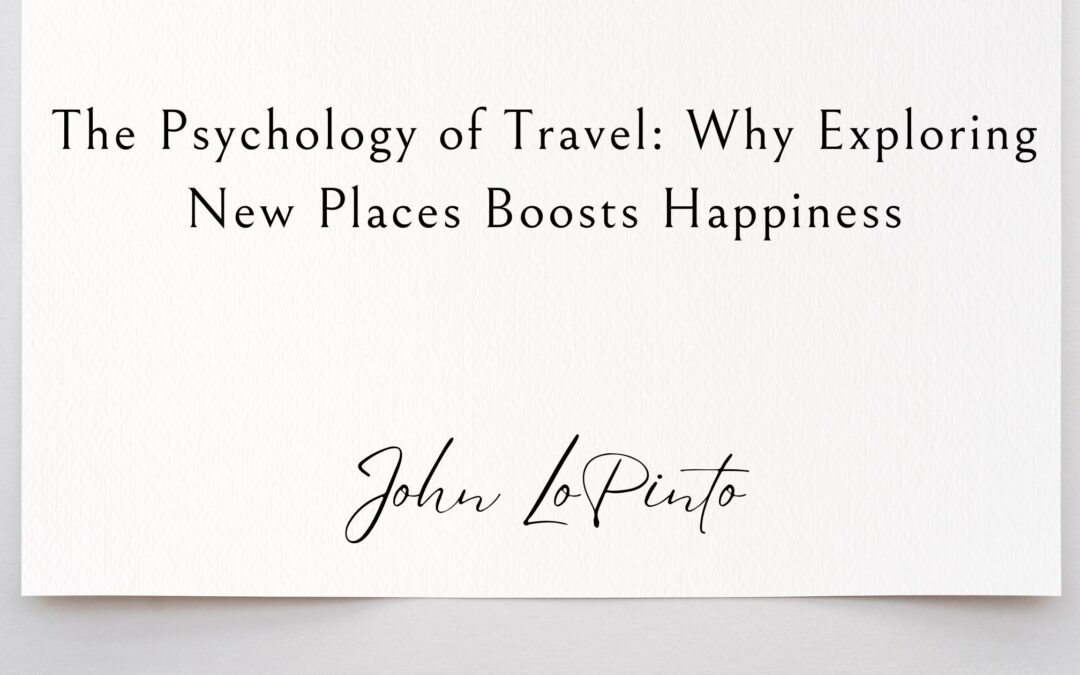Travel is often associated with leisure and adventure, but research shows it has profound psychological benefits as well. Exploring new places stimulates the mind, fosters emotional growth, and enhances overall happiness. By stepping out of familiar routines, travelers experience novelty, challenge, and discovery, key ingredients for mental well-being and personal fulfillment.
The Science of Novelty
One of the main reasons travel boosts happiness is the exposure to novel experiences. Visiting a new city, tasting unfamiliar cuisine, or learning about a different culture triggers curiosity and excitement. Neuroscience suggests that novelty stimulates the brain’s reward pathways, releasing dopamine—the neurotransmitter linked to pleasure and motivation. This rush of positive emotion contributes to the lasting sense of joy and satisfaction associated with travel.
Expanding Perspectives
Travel also encourages empathy and cognitive growth. Immersing oneself in new environments broadens perspectives, challenges preconceived notions, and fosters cultural understanding. Experiencing different ways of life cultivates adaptability and resilience, both of which contribute to emotional well-being. This psychological growth goes beyond the duration of the trip, influencing attitudes, problem-solving skills, and interpersonal relationships long after the journey ends.
Stress Reduction and Mindfulness
Being in a new setting naturally encourages mindfulness. When traveling, people focus on the present moment—navigating streets, observing landmarks, and savoring meals. This focus on “now” helps reduce stress, distract from daily worries, and improve mental clarity. Even short trips can act as a reset, providing the mental space needed to recharge and approach life with renewed energy and perspective.
Social Connections and Shared Experiences
Travel often involves shared experiences, whether with friends, family, or fellow travelers. Creating memories together strengthens relationships and fosters social bonds, which are critical components of happiness. Even solo travel provides opportunities to connect with locals or join group activities, promoting a sense of belonging and social fulfillment.
Building Confidence and Achievement
Travel challenges individuals to step out of their comfort zones—navigating foreign transportation systems, communicating in new languages, or trying adventurous activities. Successfully overcoming these challenges boosts self-confidence and creates a sense of accomplishment. This empowerment translates into daily life, enhancing both personal and professional resilience.
Long-Term Benefits
Studies have shown that experiences, particularly travel experiences, contribute more to long-term happiness than material purchases. The memories created, the skills learned, and the emotional growth achieved have lasting effects. Planning and anticipating travel can also increase happiness before the trip even begins, creating a positive psychological cycle that extends beyond the journey itself.
Final Thoughts
Travel is far more than sightseeing, it is a pathway to greater happiness, personal growth, and mental well-being. By exposing ourselves to novelty, fostering cultural understanding, reducing stress, and building confidence, travel enriches life in ways that few other activities can. Whether exploring a neighboring city or a distant country, stepping into new places provides not only adventure but also profound emotional and psychological rewards that last a lifetime.

